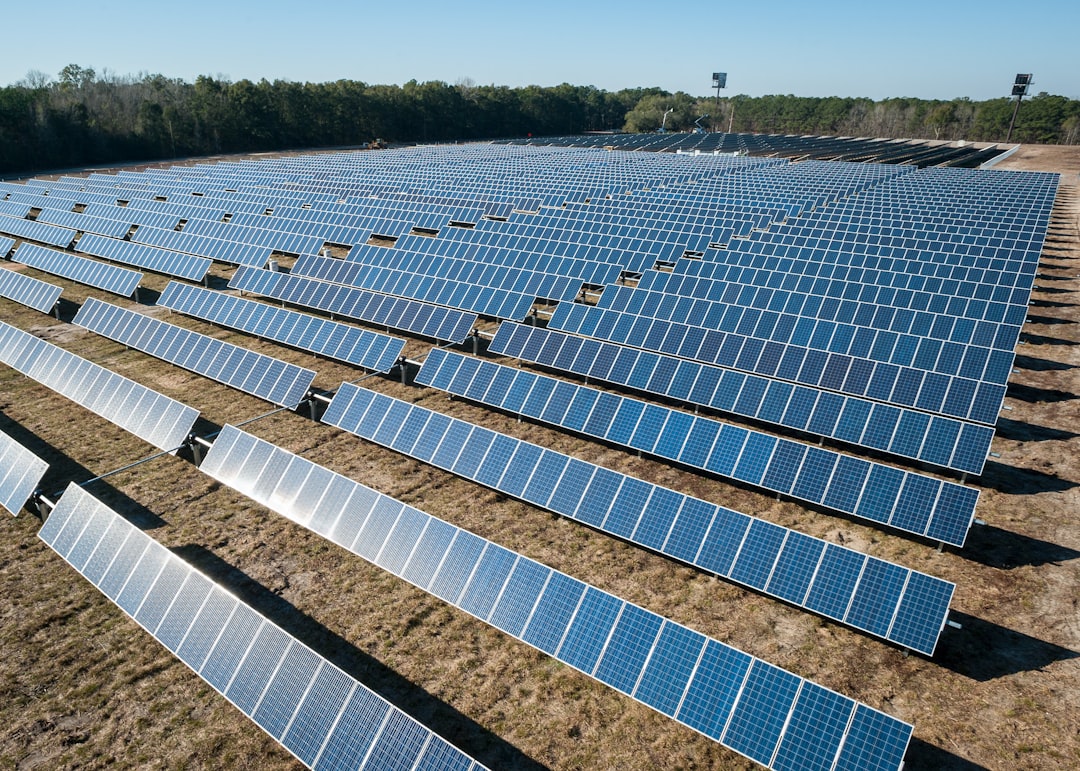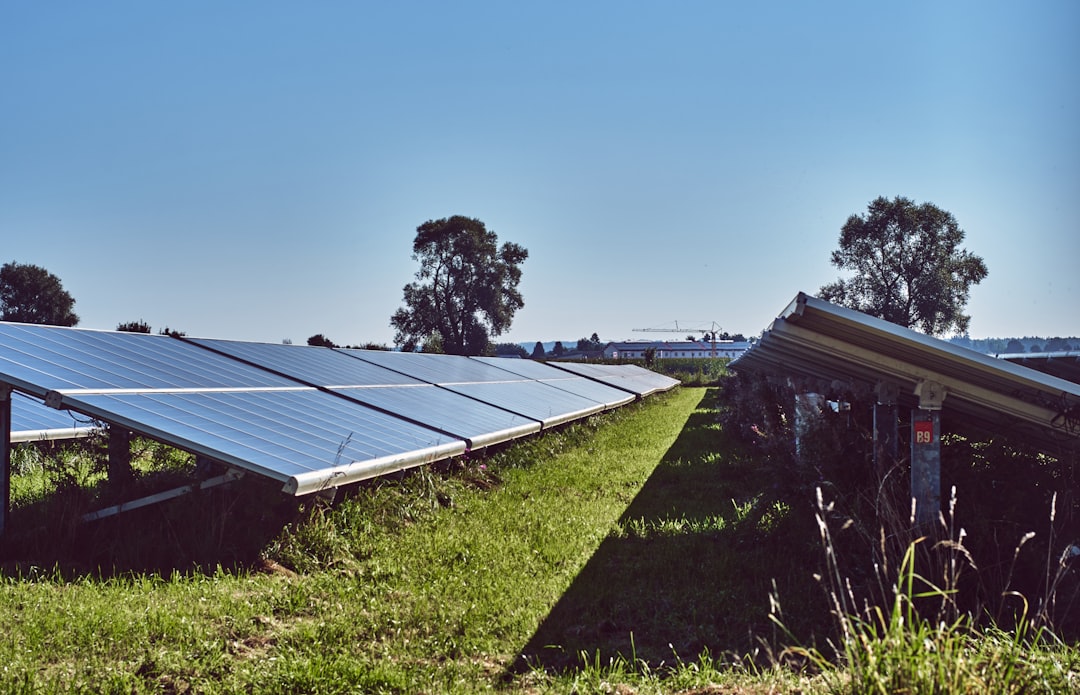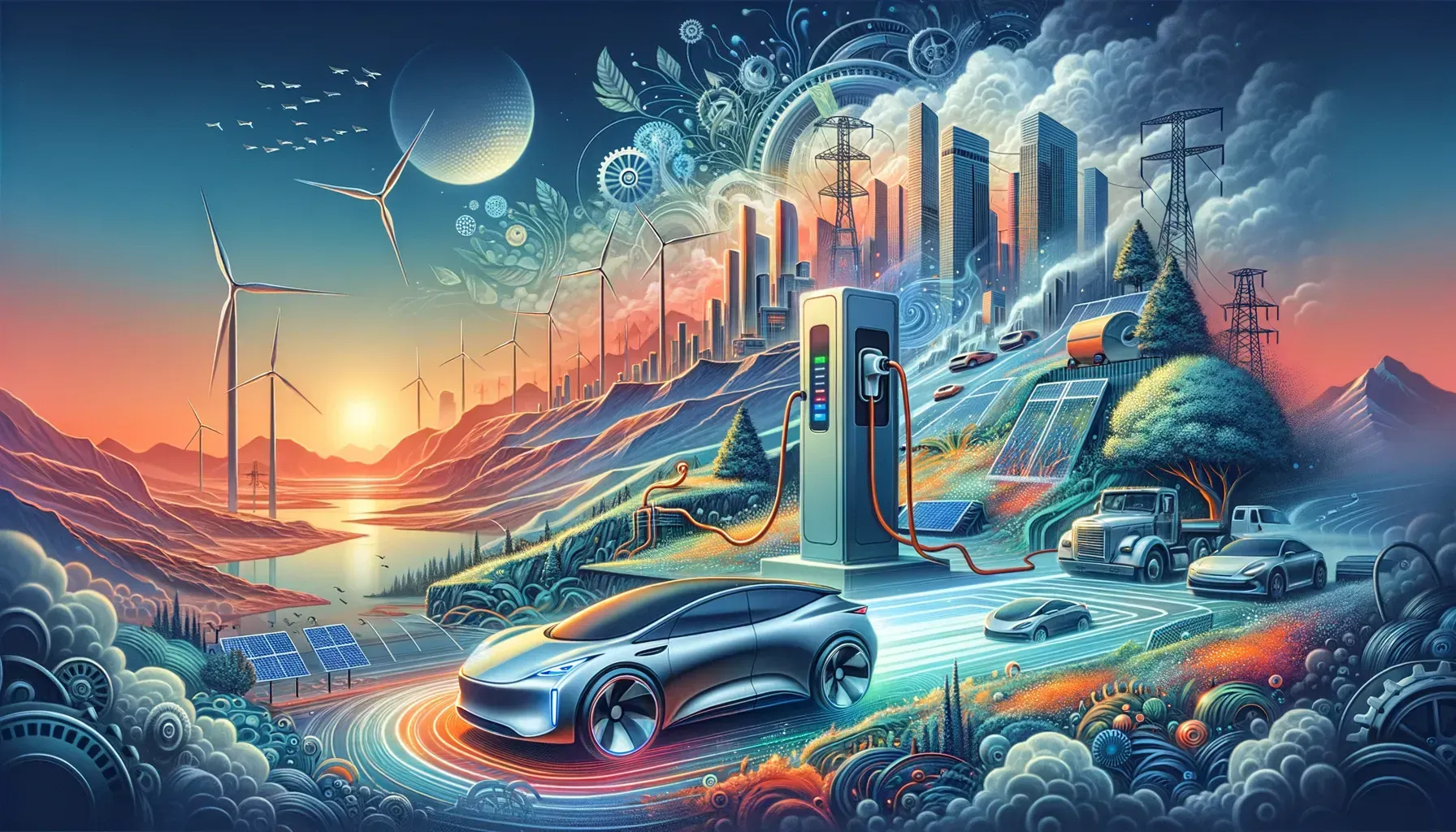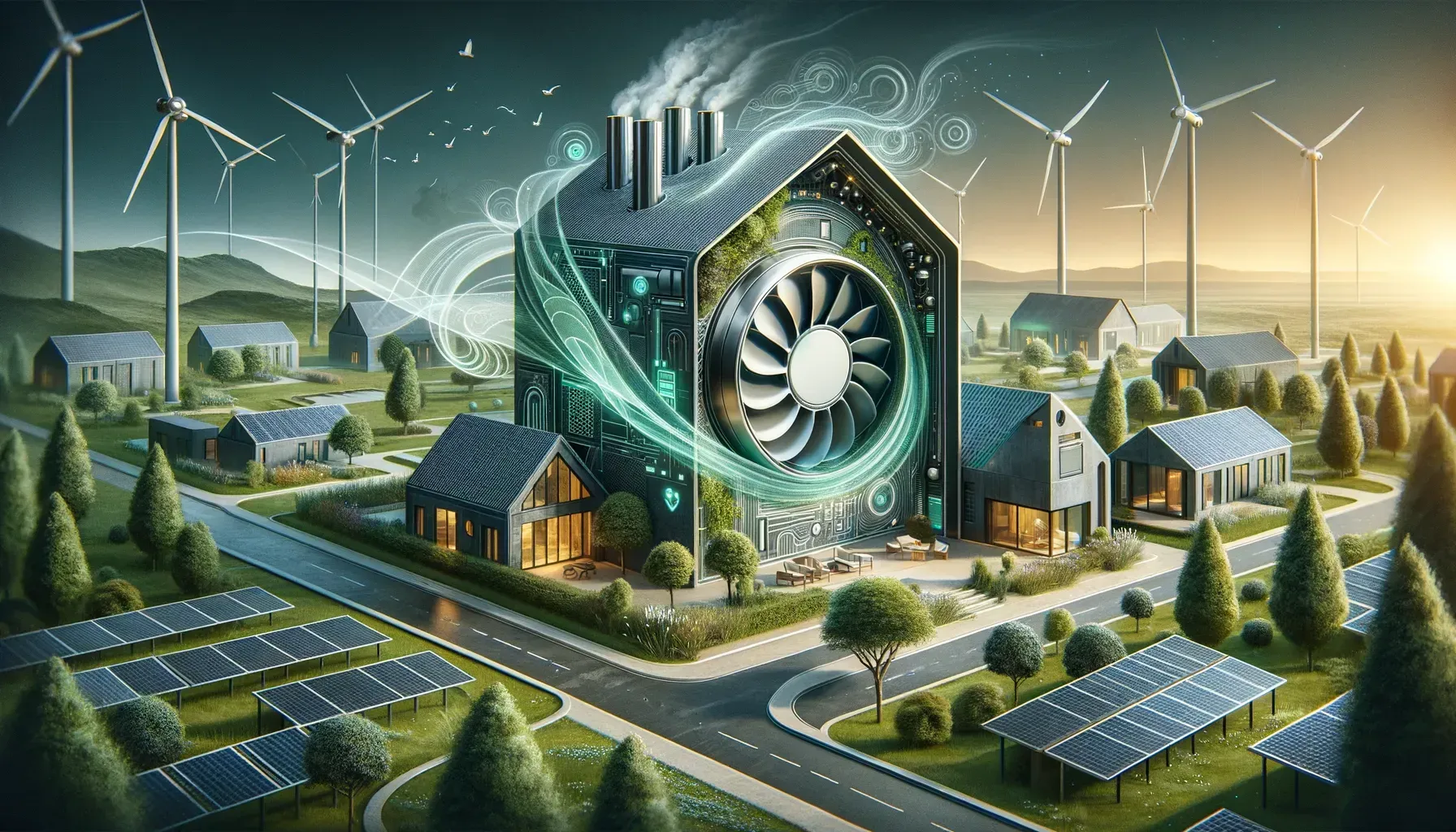Powering the Future: The Economic Boom of Renewable Energy Jobs
Discover the significant economic impact of renewable energy jobs and their potential to drive growth and sustainability in local communities.
Overview of Renewable Energy Jobs
Overview of Renewable Energy Employment Growth
The renewable energy sector stands as a beacon of promise within the global economy, showcasing an impressive trajectory of expansion and opportunity. In the United States alone, this sector held more than 40% of the 8. 35 million energy-related jobs in 2023, marking a substantial pivot towards greener, more sustainable practices. This growth is not just incremental; it's transformative, with 250,000 new positions added that year, underscoring the sector's capacity to outpace traditional fossil fuel job growth. Such momentum highlights the increasing societal and governmental commitment to renewable energy sources.
Globally, the renewable energy workforce swelled to 13.7 million in 2022, up from 12.7 million the previous year, indicating a robust international commitment to clean energy solutions. This upward trend is expected to continue, driven by strategic investments and policy initiatives. The U.S. Department of Energy forecasts a potential increase of 2. 3 million clean energy jobs by 2035, showcasing the sector's pivotal role in future economic landscapes. Particularly noteworthy is the solar industry, which alone could see the creation of approximately 1.3 million jobs by 2030, emphasizing the growing demand for solar technology and infrastructure. Such trends not only promise economic growth but also align with broader climate change mitigation efforts.
 Economic Benefits of Renewable Energy Jobs
Economic Benefits of Renewable Energy Jobs
 Impact on Local Economies and Community Development
Impact on Local Economies and Community Development
The economic impact of renewable energy jobs on local communities is profound, as they are instrumental in revitalizing local economies through job creation and increased economic activities. When investments flow into renewable energy projects, such as wind farms or solar installations, they generate direct employment opportunities during both the construction and operational phases. A prime example is how small-scale hydropower projects are not only providing electricity but also are a source of employment in remote and often economically marginalized areas. This can significantly alter the economic landscape of rural regions by creating sustainable job opportunities that contribute to long-term community development.
Moreover, the ripple effect of renewable energy jobs is noteworthy; for every direct job created in this sector, an estimated 1.17 additional jobs are generated in the local economy. This multiplier effect means that communities experience broader economic benefits, such as increased local business activities and improved public services funded by enhanced tax revenues. As property values rise in areas where renewable projects are established, local governments benefit from increased tax bases, which can be re-invested into community services and infrastructure improvements, further supporting economic and social development. The transition to renewable energy not only aligns with environmental sustainability but also acts as a catalyst for economic resilience and prosperity in local communities.
 Key Sectors Driving Job Growth
Key Sectors Driving Job Growth
Leading Sectors in Renewable Energy Employment
The renewable energy landscape is rich with sectors that are at the forefront of employment expansion, each contributing uniquely to the job market. Notably, the solar photovoltaic (PV) sector has been a powerhouse of employment, with 4.9 million people working in this field globally. This sector is particularly noteworthy for its inclusivity, with women making up 40% of the workforce, highlighting an encouraging trend towards gender diversity in technical fields. Meanwhile, the wind power sector continues to demonstrate robust job growth, employing 1.4 million individuals worldwide. This growth is bolstered by significant advancements and investments in regions such as China and Europe, where wind energy has become a cornerstone of their sustainable energy strategies.
Furthermore, the biofuels sector supports 2.5 million workers, underscoring the critical role of agricultural supply chains in renewable energy employment. This sector not only offers a variety of job opportunities but also emphasizes the interconnectedness of renewable energy with traditional industries. In addition to these established sectors, energy efficiency is anticipated to become a major employment driver, with projections suggesting the creation of over 1.5 million new positions by 2030. This growth is being driven by the increasing demand for energy-efficient technologies and practices. Simultaneously, the electric vehicle (EV) infrastructure sector is emerging as a key player, offering new career paths as it aligns closely with the broader objectives of renewable energy expansion and sustainability.
Apex Mechanical is strategically positioned to contribute to these burgeoning sectors with its expertise in mechanical, electrical, and infrastructure solutions. By focusing on cutting-edge technologies and sustainable energy practices, Apex Mechanical supports the growth of these sectors, ensuring not only job creation but also the advancement of renewable energy solutions. To explore how Apex Mechanical can support your renewable energy projects, visit Apex Mechanical for more information.
 Government Policies and Support
Government Policies and Support
Role of Legislation in Job Creation
Government policies serve as a cornerstone for renewable energy job creation and economic growth. The Inflation Reduction Act (IRA), a landmark piece of legislation, is designed to decrease U.S. emissions by 50% by 2030, while simultaneously paving the way for the creation of millions of jobs in the renewable energy sector. By offering tax breaks and establishing renewable portfolio standards, these policies provide significant financial incentives that encourage investments in clean energy infrastructure, thus expanding job opportunities across the nation. This legislative support not only accelerates the transition to renewable energy but also ensures that the workforce is equipped to meet the demands of this rapidly growing sector.
The impact of government initiatives is further evidenced by the U.S. Department of Energy's efforts, which have resulted in a noteworthy 20% growth in clean energy jobs since 2020. This progress highlights the effectiveness of strategic policy frameworks in driving employment within the renewable sector. Moreover, local, state, and federal incentives are instrumental in drawing private capital into renewable energy projects. These incentives create a favorable environment for innovation and expansion, leading to sustained job growth and increased economic stability across various communities. As the renewable energy landscape continues to evolve, the role of government policies in fostering a robust job market becomes increasingly vital. To learn more about how these policies are shaping the future of energy jobs, visit Apex Mechanical , a leader in providing advanced solutions that support this dynamic transition.
Skills and Training for Renewable Energy Careers
Addressing the Skills Gap
The renewable energy sector is experiencing a significant skills gap, which presents both challenges and opportunities for workforce development. This gap is particularly evident in areas such as engineering, where expertise in designing and maintaining renewable energy systems is crucial for effective project implementation. Additionally, there is a rising demand for project managers who can oversee renewable energy initiatives and ensure their successful completion, as well as energy policy experts who can navigate the complex regulatory landscape. To address these needs, educational institutions are proactively expanding their curricula and establishing specialized training programs designed to equip students with the necessary skills to thrive in the renewable energy sector.
Beyond formal education, the sector is seeing a surge in apprenticeship programs that offer hands-on experience and practical learning opportunities. These programs have increased by 40% over the past five years, reflecting a growing recognition of the importance of industry-academic partnerships in bridging the skills gap. Moreover, there is a strong emphasis on labor rights and social dialogue, which are essential components of a just energy transition that benefits all stakeholders. By fostering collaboration between educational entities and industry leaders, the renewable energy sector can ensure that its workforce is well-prepared to meet the challenges of the future and seize the opportunities presented by a rapidly evolving energy landscape. For those looking to get involved in this dynamic field, exploring partnerships with companies like Apex Mechanical, which prioritizes innovation and excellence in renewable energy solutions, can offer valuable insights and career pathways. Consider visiting Apex Mechanical to learn more about how their advanced infrastructure solutions can support your renewable energy ambitions.
Long-term Economic Stability and Sustainability
Future Prospects and Stability
The future of renewable energy jobs holds immense potential for bolstering long-term economic stability and fostering sustainable growth. As the world shifts towards achieving net-zero emissions, projections indicate that up to 5.7 million jobs could be created by 2035 through enhanced domestic manufacturing efforts. This transition not only supports economic resilience but also aligns with vital climate change initiatives, ensuring that environmental goals are met alongside economic ambitions. The anticipated 20% growth in sustainable energy job sectors over the next decade further underscores the sector's substantial contribution to the economy, reflecting a robust response to global demands for cleaner energy solutions.
Moreover, the renewable energy industry is poised to be a pivotal force in economic development, with forecasts suggesting it could add over $1 trillion to the U.S. economy by 2030. This growth is not just a testament to the sector's economic viability but also its importance in building a resilient and sustainable economic framework. As investment in renewable energy continues to rise, the ripple effects will likely enhance related industries and stimulate new innovations. Companies like Apex Mechanical, with their expertise in electrification and energy storage solutions, are at the forefront of this transformation, offering essential infrastructure services that support this sustainable energy transition. To explore how Apex Mechanical can assist in your renewable energy projects, visit Apex Mechanical.
Technological Advancements and Innovation
Impact of Technology on Job Creation
The rapid advancement of technology is profoundly influencing job creation within the renewable energy sector, offering a wealth of new opportunities for professionals across various disciplines. Energy storage innovations, particularly in battery technology, are revolutionizing how energy is stored and used, leading to the creation of specialized roles focused on optimizing these systems for both residential and commercial applications. The smart grid technology, which integrates digital communication technology with the power grid, is expanding career possibilities by demanding expertise in areas like data analysis and cybersecurity to manage and protect these sophisticated networks.
Furthermore, the continuous improvements in solar and wind technologies not only boost efficiency but also spur job growth by requiring skilled technicians and engineers to implement and maintain these systems. For example, the development of more efficient solar panels and wind turbines has necessitated a diverse array of roles ranging from R&D specialists to field installation experts. Additionally, the incorporation of artificial intelligence and automation into energy management systems is reshaping traditional job functions, creating a more dynamic and versatile workforce capable of adapting to new technological demands. The potential for growth is immense; research and development in these renewable technologies are anticipated to create up to 1 million additional jobs by 2030, underscoring the sector’s significant impact on the economy and job market. Apex Mechanical is at the forefront of embracing these technological innovations, providing advanced infrastructure solutions that support the growth of renewable energy jobs. Visit Apex Mechanical to discover how their cutting-edge services can enhance your renewable energy projects.
Regional and Global Trends in Renewable Energy Jobs
 Geographic Hotspots and Global Leaders
Geographic Hotspots and Global Leaders
Around the world, specific regions and countries are emerging as key players in the expansion of renewable energy jobs, marking significant advancements in various sectors. In the southwestern U.S., the solar energy industry is booming, making it a central hub for solar careers, which is bolstered by the region's abundant sunlight and supportive state policies. Meanwhile, Northern Europe, with its strong focus on sustainability, has established itself as a leader in wind energy employment, capitalizing on its favorable wind conditions and technological advancements. China stands out on the global stage, leading with 41% of the renewable energy jobs worldwide, largely driven by its expansive investments and developments in solar photovoltaic (PV) technologies.
Moreover, countries such as Iceland and New Zealand have carved out niches in geothermal energy, significantly impacting their local economies due to the natural geothermal resources available. These countries have not only harnessed local resources for energy but have also created numerous job opportunities that benefit their communities. In the United States, states like California and Texas are recognized for their progressive renewable energy policies and substantial investments, which have positioned them as leaders in job creation within the sector. Furthermore, emerging markets in Africa and Southeast Asia are on the rise, with renewable energy sectors expanding rapidly due to international investments and a growing emphasis on sustainable development. This global trend highlights the increasing importance of renewable energy jobs in fostering economic growth and environmental sustainability across diverse geographic areas.
Challenges and Opportunities in the Renewable Energy Workforce
Addressing Industry Challenges
The renewable energy workforce faces several challenges that simultaneously present opportunities for innovation and growth. One significant challenge is the vulnerability of global supply chains, which can disrupt the flow of materials and resources essential for renewable energy projects. In response, countries are adopting policies to strengthen local job creation, thereby enhancing job stability and reducing reliance on international supply chains. This shift not only supports local economies but also encourages the development of a more resilient and self-sufficient renewable energy sector.
Another pressing issue is ensuring equitable job distribution across diverse communities. This involves making concerted efforts to include low-income and minority communities in the renewable energy workforce, thereby fostering a more inclusive and diverse employment landscape. Additionally, the sector must tackle concerns related to job quality and worker protections. This requires implementing robust policies and practices that guarantee safe working conditions and fair labor standards. Companies such as Apex Mechanical are at the forefront of providing innovative infrastructure solutions that address these challenges. By supporting community development and promoting sustainable job creation, Apex Mechanical plays a crucial role in advancing the renewable energy industry. Exploring their services at Apex Mechanical can offer insights into how these solutions can benefit your projects and contribute to a sustainable energy future.
Call to Action: Explore Renewable Energy Solutions
The burgeoning field of renewable energy jobs is not just a beacon of hope for sustainable development but also a catalyst for robust economic growth. With the sector poised to create millions of jobs globally, it provides avenues for innovation and community empowerment. The transition to clean energy requires comprehensive solutions that can integrate with existing infrastructures, emphasizing the need for efficient electrification and reliable energy storage systems. Apex Mechanical stands at the forefront of this transition, offering cutting-edge infrastructure solutions that cater to both residential and commercial projects. Their expertise in electrification and EV charger installations ensures that communities are well-equipped to embrace a sustainable future.
Moreover, Apex Mechanical's commitment to excellence and innovation underscores their role in facilitating this energy transition. They provide tailored services that not only meet current energy demands but also anticipate future needs, thereby ensuring that your renewable energy projects are both forward-thinking and resilient. By partnering with industry leaders like Apex Mechanical, you can leverage their advanced technologies and expert solutions to maximize the economic and environmental benefits of your ventures. To explore how Apex Mechanical can support your renewable energy initiatives and contribute to a sustainable energy landscape, visit Apex Mechanical today.












